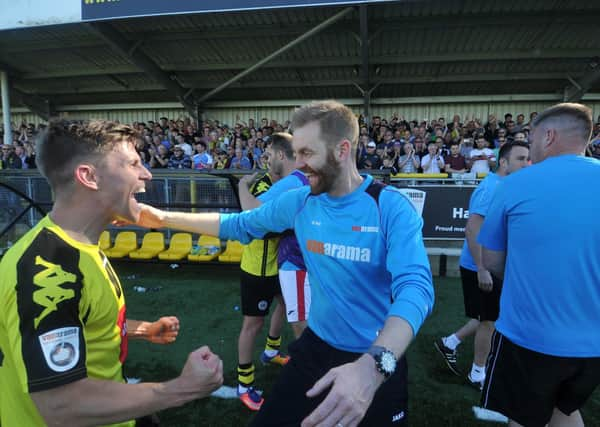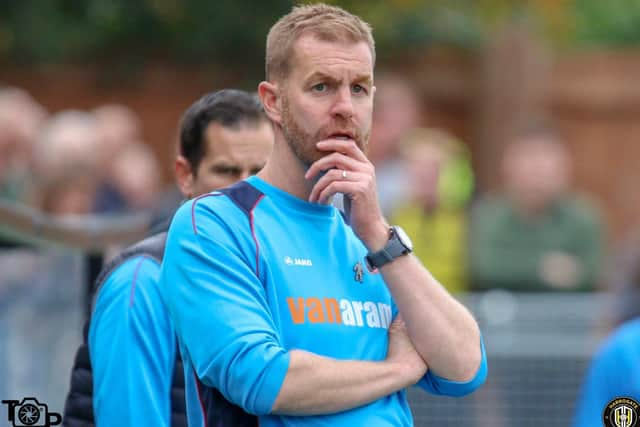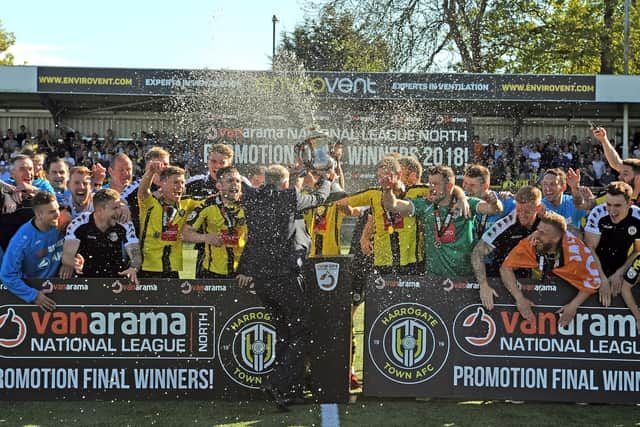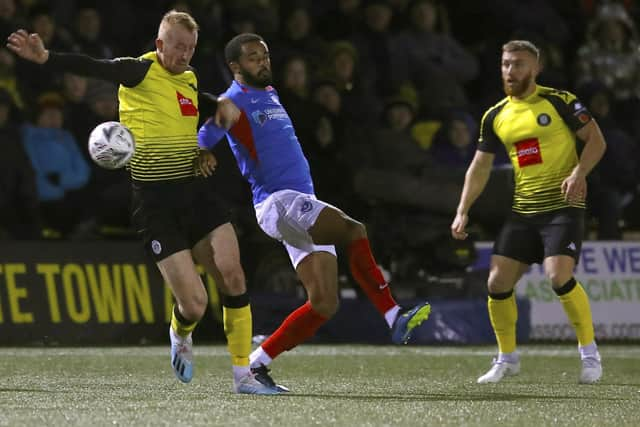Fighting qualities see Simon Weaver stick around for long haul at Harrogate Town


The game, as the cliche goes, is very much a results business and it has become increasingly uncommon in recent years to see the man at the helm permitted much of an opportunity to turn things around once a team begins to struggle.
Indeed, statistics released by the League Managers’ Association at the end of the 2017-18 season revealed that the average tenure of members dismissed from their posts that term was just 1.16 years.
Advertisement
Hide AdAdvertisement
Hide AdThere are, of course, exceptions to the rule, but football clubs willing to give managers the chance to build something over an extended period are few and far between these days.


Anyone interested in what it is actually possible to achieve when presented with such an opportunity should look no further than Harrogate Town boss Simon Weaver, currently the longest-serving manager in English professional football.
Now into his 11th season in charge of the Wetherby Road outfit, he has overseen a significant transformation and led the club to within touching distance of the Football League, though the 42-year-old didn’t make his mark overnight.
Weaver was just 31 and had no prior coaching or managerial experience when he was appointed by former Leeds United supremo Bill Fotherby.
Advertisement
Hide AdAdvertisement
Hide AdAt the time, Harrogate boasted just seven season-ticket holders, a squad comprising the sum total of no players and were so lacking in facilities and resources that they were sometimes forced to train in a car park.


Constrained by a limited wage budget and with all of the aforementioned issues to contend with, it should come as no great surprise that Weaver’s reign as Town boss did not begin particularly well.
The club finished 2009-10 bottom of Conference North, only avoiding relegation due to Farsley Celtic’s resignation and the expulsion of Northwich Victoria.
Weaver has admitted since that he expected to be sacked as a result of his team’s poor showing that season, but he has gone on to make the most of the fact that the late Fotherby opted to persevere with his rookie boss.
Advertisement
Hide AdAdvertisement
Hide AdThere have been plenty of ups and downs since that initial reprieve, though the last three years have brought only progress.


Their first-ever season as a fully professional outfit saw Harrogate promoted from National League North behind 2017-18 champions Salford City.
A National League play-off berth was then secured as the club’s maiden outing in English football’s fifth tier ended with them in sixth place.
This term, they were second in the table, just four points behind leaders Barrow when competition was suspended due to the coronavirus outbreak.
Advertisement
Hide AdAdvertisement
Hide AdNaturally, Weaver has learned a huge amount during the last decade, too much to quantify he says, but he believes that not compromising on playing style ranks among the most important decisions he took early on.
“I played under a long-ball manager in Keith Alexander, a footballing manager in Brian Horton and had a lot of different styles in my head when I first started out,” he revealed.
“Initially, it was about survival, and I had to do a lot of chopping and changing in the early days just to try and get the best out of what I had because we didn’t have enough quality.
“But I really wanted my team to reflect values that I think are important – effort, attitude and honesty – and to play football that is exciting to watch.
Advertisement
Hide AdAdvertisement
Hide Ad“Once I was clear about what I wanted to do, it was a case of learning the process of how to deliver it, something that is still a work in progress.”
There is, however, so much more to succeeding in management than simply getting your tactics right, and Weaver concedes that he has learned plenty from his mistakes.